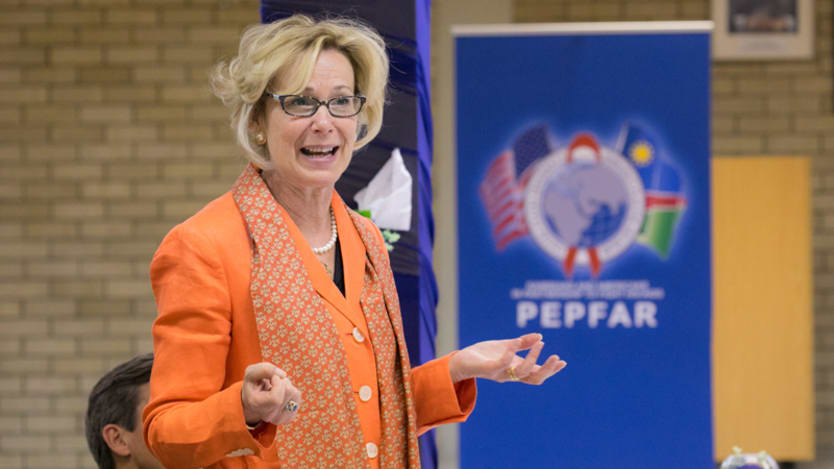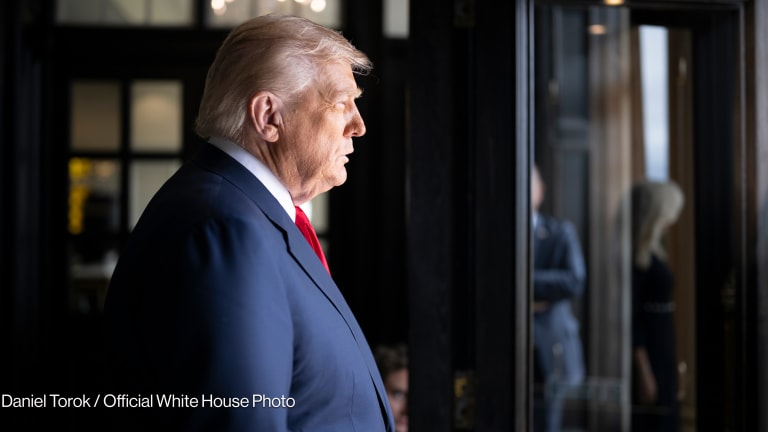US global AIDS coordinator downplays proposed cuts, says programs can be more efficient

Ambassador Deborah Birx, the United States global AIDS coordinator, downplayed the significance of White House proposals to cut U.S. global AIDS spending by $1 billion on Thursday.
Speaking at the Center for Strategic and International Studies, a Washington, D.C.-based think tank, Birx lauded “the depth of the administration’s commitment” to U.S. global health programs, pointed to broad support from Congress, and said “inefficiencies and ineffectiveness” persist in the U.S. President's Emergency Plan for AIDS Relief’s programs. Better data can help to reduce those inefficiencies, she said.
“No one wants to talk about this, but the fact that we’ve increased treatment by 50 percent in the last three years in a flat budget — this isn’t a miracle. This says that we had a lot of inefficiencies and ineffectiveness, and we just have to be honest about that and fix them,” Birx said.
Birx, who was appointed by President Barack Obama and retained by President Donald Trump, praised Secretary of State Rex Tillerson’s “very active engagement” on PEPFAR. “You’ve seen his briefings and his Hill briefings and how engaged he’s been and how knowledgeable he’s been on PEPFAR,” she said.
“I know we like to talk about budget, but I really like to talk about how much we’ve been able to do within our budget
— Ambassador Deborah Birx, U.S. global AIDS coordinatorOthers have seen Tillerson’s actions in a different light. Last month, after Tillerson testified in support of the White House proposal to reduce PEPFAR’s budget by $1 billion, a group of 41 advocacy, research and implementing organizations — including many of PEPFAR’s largest implementing partners — sent a letter, which Devex obtained, to the secretary of state expressing concern about the funding levels and policy directions he advocated in his testimony.
“You testified that a proposed $1 billion reduction to State, USAID and CDC Global Health accounts will be offset by cutting back to focus on epidemic control to only 11 countries. In your testimony, you suggested PEPFAR will focus on this subset of countries until they are self-sufficient, and then there will be an opportunity to expand. But as PEPFAR’s own 2017 report to Congress showed, this is a failed strategy,” the June 23 letter reads.
Stay up to date on Devex coverage of U.S. foreign policy under Trump:
► House committee approves foreign aid budget in late-night session
► No intent to merge USAID into State, says deputy secretary of state
▶ The US military could take a stronger role in stabilizing African nations. Does it want to?
▶ What Trump's budget request says about US aid
▶ As budget negotiations begin, here's where US Congress stands on foreign aid
In its budget bill for fiscal year 2018, the Republican-controlled House of Representatives proposed to maintain funding for global HIV programs at the current level, with a $6 billion total allocation.
In her remarks on Thursday, Birx suggested that focusing solely on the amount of money Congress appropriates to PEPFAR underrepresents congressional interest in U.S. AIDS programs. She pointed to congressional visits to PEPFAR project sites as a sign of bipartisan support, and noted that lawmakers “come back with very specific insights and questions that are really helpful to us.”
“I know we like to talk about budget, but I really like to talk about how much we’ve been able to do within our budget and how much more we can do if we really continue to look for those kinds of inefficiencies we have and we know all programs have,” she added.
What's the future of U.S. aid and development policy under the Trump administration? Read Devex news and analysis and subscribe to The Development Newswire.
Search for articles
Most Read
- 1
- 2
- 3
- 4
- 5








